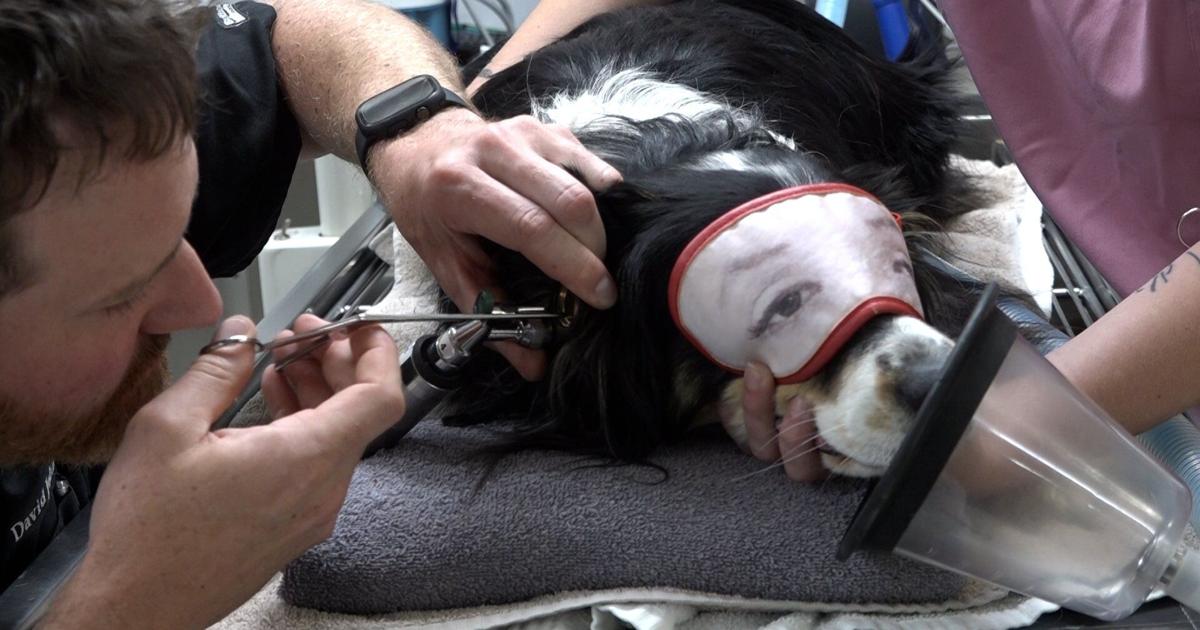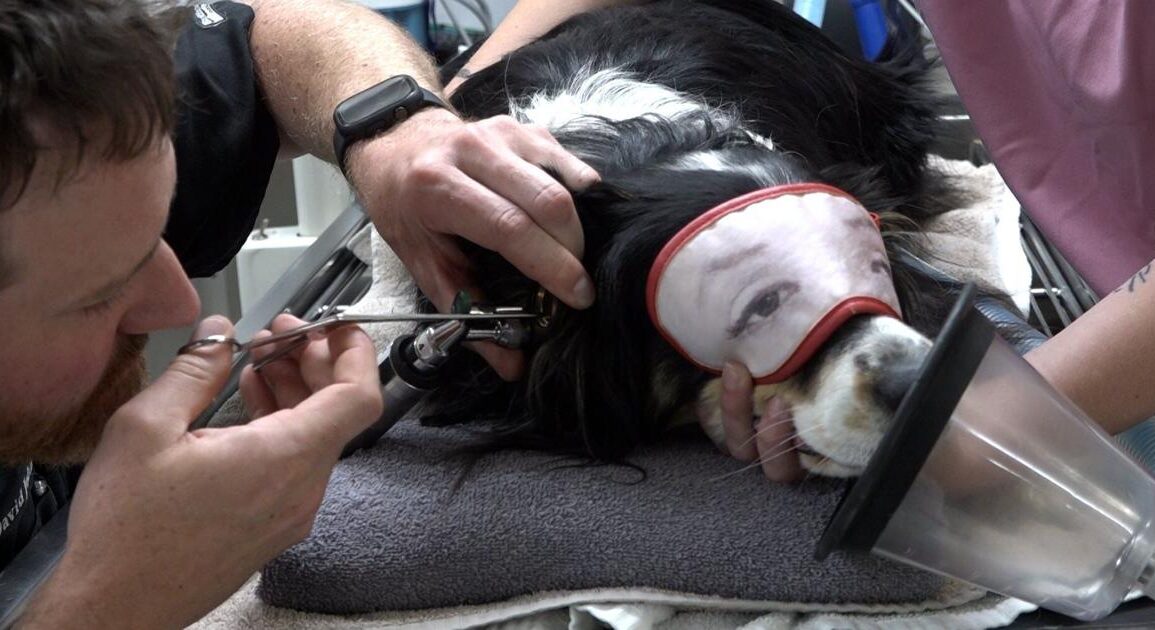
BEND, Ore. — Central Oregon’s wetter-than-average winter and early spring has set up for a busy summer at Central Oregon veterinary clinics and hospitals. The moisture is allowing grasses such as foxtail and cheat grass to grow more than normal.
“The wet end of the fall and earlier this year has really made them come out in big numbers,” managing DVM of Central Oregon Animal Hospital Dr. David Johnston said.
The plants may look like harmless, long grasses. But for dogs, they can really be a thorn in their side, feet and any other location on their body.
“A lot of time there will be a lot of head shaking, pawing at the ear. Whining, head tilting those sorts of things is what I expect for ears. If it’s between their paws, a lot of the times they’ll be licking that spot between their toes,” Johnston said.
Some are easy to find and pull out at home. But for pups who like to frolic in grassy fields, cases can require sedation and even surgery to remove.
“If they’re getting in the ear, it could cause chronic ear infection. I have seen a couple ruptured ear drums. Between the feet they can cause draining tracts where they work their way up the leg and even death in some of them. They can travel up through the leg and down into the chest and diaphragm and cause them to die,” Johnston said.
If left untreated, the seed barbs can penetrate the skin and, as the animal moves, the seed digs itself deeper which can lead to serious infection. They can also latch themselves inside any orifice.
“If you’re out seeing grasses with your dogs running through them, always check between the paws when you get home. Avoid places if you have a dog that is prone to having these issues. We do use the No Flap Ear Wrap which covers the ears so nothing can get in them while they’re out,” Johnston said.
Grass seed cases can cost anywhere between $350 to $1,000 depending on the severity.
This post was originally published on this site be sure to check out more of their content.













































